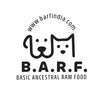Introduction
When it comes to our beloved canine companions, ensuring their health and well-being is paramount. One often overlooked aspect of a dog's overall health is their dental hygiene. Just like humans, dogs can suffer from dental issues such as plaque buildup, tartar accumulation, gum disease, and bad breath. Fortunately, there's a natural solution that not only promotes dental health but also keeps your furry friend's breath fresh: dehydrated bones. In this blog, we'll explore how dehydrated bones can benefit your dog's dental health and contribute to fresher breath.
Understanding Canine Dental Health
Dental health is a critical aspect of a dog's overall well-being. Unfortunately, it's also one of the most neglected areas of pet care. Dogs use their mouths for various activities, including eating, playing, and exploring, which can lead to the accumulation of plaque and tartar on their teeth over time. If left untreated, plaque and tartar buildup can result in gum disease, tooth decay, and other oral health issues that can impact your dog's quality of life.
The Benefits of Dehydrated Bones for Dental Health
-
Natural Teeth Cleaning: One of the most significant benefits of dehydrated bones for dogs is their ability to naturally clean teeth. When dogs chew on bones, the abrasive action helps scrape away plaque and tartar buildup from their teeth. Unlike soft toys or treats that may only clean the surface of the teeth, dehydrated bones provide a thorough cleaning that reaches all areas of the mouth, including hard-to-reach areas between teeth and along the gumline.
-
Gum Stimulation: Chewing on dehydrated bones not only cleans your dog's teeth but also stimulates their gums. The act of chewing promotes increased blood flow to the gums, which helps keep them healthy and prevents gum disease. Healthy gums are essential for maintaining strong teeth and supporting overall dental health in dogs.
-
Reduction of Bad Breath: Bad breath, also known as halitosis, is a common problem in dogs and is often caused by bacteria in the mouth. The natural cleaning action of chewing on dehydrated bones helps remove bacteria and food particles from your dog's teeth and gums, reducing the odor-causing compounds that lead to bad breath. Regular chewing on bones can significantly improve your dog's breath, leaving them with fresher breath and a healthier mouth.
-
Prevention of Dental Issues: Regular chewing on dehydrated bones can help prevent common dental issues such as gum disease, tooth decay, and tooth loss. By keeping your dog's teeth clean and gums healthy, dehydrated bones reduce the risk of oral health problems that can lead to pain, discomfort, and costly veterinary bills down the road. Prevention is key when it comes to maintaining your dog's dental health, and dehydrated bones offer a natural and effective way to keep their teeth and gums in top condition.
-
Mental Stimulation: In addition to promoting dental health, chewing on dehydrated bones provides dogs with mental stimulation and enrichment. Dogs have a natural instinct to chew, and providing them with bones to chew on satisfies this instinct and helps prevent boredom and destructive behavior. Chewing on bones can also help relieve stress and anxiety in dogs, making it a beneficial activity for their overall well-being.
How to Safely Introduce Dehydrated Bones for Dental Health
While dehydrated bones offer numerous benefits for dental health, it's essential to introduce them safely into your dog's routine:
-
Choose Appropriate Bones: Select dehydrated bones that are the right size and texture for your dog's breed, size, and chewing habits. Avoid bones that are too small, as they may pose a choking hazard, and opt for bones that are large enough to encourage chewing rather than swallowing whole.
-
Supervise Chew Sessions: Always supervise your dog while they are chewing on dehydrated bones to ensure they chew safely and do not ingest large chunks or sharp fragments. If the bone becomes small enough to swallow whole or if your dog shows signs of discomfort, remove it promptly.
-
Monitor Dental Health: Regularly monitor your dog's dental health, including the condition of their teeth and gums, as well as their breath odor. If you notice any signs of dental issues such as redness, swelling, or bleeding gums, or persistent bad breath, consult with your veterinarian for further evaluation and treatment.
-
Rotate Bones: Rotate different types of dehydrated bones in your dog's diet to provide variety and prevent boredom. Consider offering bones with different shapes and textures to keep your dog engaged and interested in chewing.
-
Consult Your Veterinarian: Before introducing dehydrated bones into your dog's diet, consult with your veterinarian, especially if your dog has pre-existing dental issues or dietary restrictions. Your veterinarian can provide personalized advice and recommendations based on your dog's specific needs and health status.
Conclusion
In conclusion, dehydrated bones are a natural and effective way to promote dental health and fresh breath in dogs. From natural teeth cleaning and gum stimulation to the reduction of bad breath and prevention of dental issues, dehydrated bones offer a range of benefits that contribute to your dog's overall well-being. By introducing dehydrated bones safely into your dog's routine and following proper guidelines for selection and supervision, you can help ensure that your furry friend enjoys optimal dental health and a lifetime of fresh breath.

